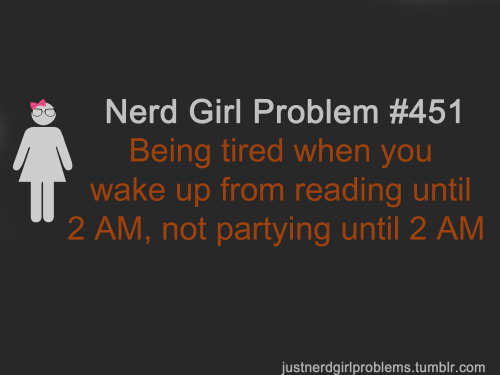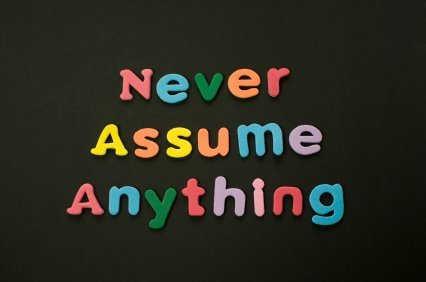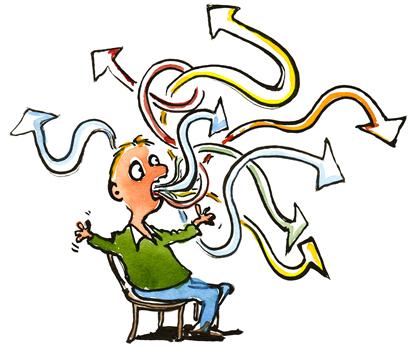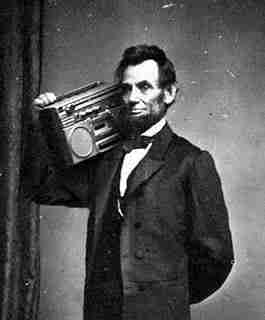1. Briefly summarize the plot of the novel you read, and explain how the narrative fulfills the author's purpose (based on your well-informed interpretation of same).
Hazel, a 17 year old girl with terrible lung cancer, is at the beginning of the book, very depressed because of her situation. She finds no need to have friends and only lives to read. An Imperial Affliction by Peter Van Houten is her favorite book but she has some questions for Van Houten as to how the story ends. She meets Augustus, a boy who lost his leg to cancer but is now cancer free. They hit it off and Hazel gets Augustus hooked on Van Houten's novel which leads to him emailing the author. Hazel also emails him and he says he will tell her the secrets of the book if she went to Amsterdam to meet with him. Augustus uses his Make a Wish Foundation Wish and they head to Amsterdam. Van Houten turns out to be a total jerk and that's all I've read. I don't want to spoil it by looking up the ending online because I really like this book but I will update this post when I am finished reading.
2. Succinctly describe the theme of the novel. Avoid cliches.
Love triumphs over all...joking, how cliche would that theme be, although it is one of the themes. I'd like to choose sacrifice as one of the most important themes in this book. A mother's sacrifice, a lover's sacrifice and a personal sacrifice all characterize how the each character uses the theme in their interdependence. The mother of Hazel sacrifices her time in order to care for her daughter in her illness and although Hazel is annoyed by the constant watchful eye of her mother, she needs it. A lover's sacrifice is evident when Augustus gives up his Wish for Hazel or as Hazel states it, she "hijacked his Wish" as she had already used hers. Personal sacrifice is shown in how Hazel secludes herself from others so when she dies, they do not feel as much pain. She sacrifices her personal pain so as to not cause pain in others when she passes.
3. Describe the author's tone. Include a minimum of three excerpts that illustrate your point(s).
Hazel narrates the novel and her tone is funny, friendly and has a touch of sophistication. She narrates as if she would be talking to a close friend.
4. Describe a minimum of ten literary elements/techniques you observed that strengthened your understanding of the author's purpose, the text's theme and/or your sense of the tone. For each, please include textual support to help illustrate the point for your readers. (Please include edition and page numbers for easy reference.)
Colloquialism:
Me: “I refuse to attend Support Group.”
Mom: “One of the symptoms of depression is disinterest in activities.”
Me: “Please just let me watch America’s Next Top Model. It’s an activity.”
Mom: “Television is a passivity.”
Me: “Ugh, Mom, please.”
Mom: “Hazel, you’re a teenager. You’re not a little kid anymore. You need to make friends, get out of the house, and live your life.”
Me: “If you want me to be a teenager, don’t send me to Support Group. Buy me a fake ID so I can go to clubs, drink vodka, and take pot.”
Mom: “You don’t take pot, for starters.”
Me: “See, that’s the kind of thing I’d know if you got me a fake ID.”
Mom: “You’re going to Support Group.”
Me: “UGGGGGGGGGGGGG.”
Mom: “Hazel, you deserve a life.”
Symbolism:
“Why? Why would you even like me? Haven’t you put yourself through enough of this?” I asked, thinking of Caroline Mathers.
Gus didn’t answer. He just held on to me, his fingers strong against my left arm. “We gotta do something about this frigging swing set,” he said. “I’m
telling you, it’s ninety percent of the problem.”
The swing set is a symbol for childhood and many times Hazel is attracted to play on it again but Gus tells her she needs to find it a new home. Just as she can't go back to her childhood, something stops her from going and playing again on the swing set. She finally lets go of that dream and faces reality, as she gives away the swing set.
Foil:
He wiped his sopping face with a sleeve. Behind his glasses, Isaac’s eyes seemed so big that everything else on his face kind of disappeared and it
was just these disembodied floating eyes staring at me—one real, one glass. “It’s unacceptable,” he told me. “It’s totally unacceptable.”
“Well, to be fair,” I said, “I mean, she probably can’t handle it. Neither can you, but she doesn’t have to handle it. And you do.”
“I kept saying ‘always’ to her today, ‘always always always,’ and she just kept talking over me and not saying it back. It was like I was already gone,
you know? ‘Always’ was a promise! How can you just break the promise?”
“Sometimes people don’t understand the promises they’re making when they make them,” I said.
Isaac shot me a look. “Right, of course. But you keep the promise anyway. That’s what love is. Love is keeping the promise anyway. Don’t you
believe in true love?”
I didn’t answer. I didn’t have an answer. But I thought that if true love did exist, that was a pretty good definition of it.
“Well, I believe in true love,” Isaac said. “And I love her. And she promised. She promised me always.” He stood and took a step toward me. I pushed
myself up, thinking he wanted a hug or something, but then he just spun around, like he couldn’t remember why he’d stood up in the first place, and then
Augustus and I both saw this rage settle into his face.
The relationship between Issac and Monica serves as a foil for the relationship between Hazel and Gus. Issac and Monica where exaggerated and their love was somewhat of a cliche teenage love that no one takes seriously. They broke up because they didn't understand each other but mostly because Issac went fully blind which Monica, a healthy teenager, can't relate to. This relationship makes Hazel and Gus' seem much more mature. They also both have/had cancer and therefore understand each other.
Flashback:
Even though it was a geographic inconvenience, I really liked Holliday Park. When I was a little kid, I would wade in the White River with my dad and
there was always this great moment when he would throw me up in the air, just toss me away from him, and I would reach out my arms as I flew and he
would reach out his arms, and then we would both see that our arms were not going to touch and no one was going to catch me, and it would kind of scare
the shit out of both of us in the best possible way, and then I would legs-flailingly hit the water and then come up for air uninjured and the current would
bring me back to him as I said again, Daddy, again.
This flashback serves to comfort Hazel just for only a second by reminding her that she had a life before cancer. It comforts but then stings once she realizes how her reality truely is.
Aphorism:
“That's the thing about pain...it demands to be felt.”
“You don't get to choose if you get hurt in this world...but you do have some say in who hurts you. I like my choices.”
“What a slut time is. She screws everybody.”
“The marks humans leave are too often scars.”The author sneeks in theses great qoutes about life the aspects of life that I just can't get out of my head.
Motif:
Water is present throughout the novel. In Hazel's lungs, in Gus' last name, in Amsterdam, rainwater and in other metaphors. This is what John Green had to say about water.
"Well, for Hazel and for a lot of people (and also a lot of places), water is both a creator and destroyer of life.
So let’s look at this from the perspective of a person, Hazel, and a place, Amsterdam.
Water makes life possible for Hazel, but the fluid in her lungs (which she refers to as water) is killing her.
Amsterdam would never have become a great city if it weren’t surrounded by water, but the city—which has benefited so much from its geography—is also drowning, and at constant risk of disaster from flooding.
I am of course not the first person to make this observation; the Latin phrase quod me nutrit, me destruit (that which nourishes me destroys me) goes way back. But I wanted to write a novel about the things that make life possible (and valuable) and how many of those things are also what makes life painful and temporary.
Water seemed like a good metaphor for getting into some of that stuff. (Plus water does all kinds of other convenient things, like follow the path of least resistance.) But you shouldn’t feel like you’re not doing a good job of reading the novel if you’re not conscious of that kind of stuff when you’re reading. There are many good ways to read a book, and if the metaphors work, you don’t need to be overly aware of them for them to move you and make you think."
Soliloquy:
“Hazel Grace, like so many children before you—and I say this with great affection—you spent your Wish hastily, with little care for the consequences.The Grim Reaper was staring you in the face and the fear of dying with your Wish still in your proverbial pocket, ungranted, led you to rush toward the firstWish you could think of, and you, like so many others, chose the cold and artificial pleasures of the theme park.”“I actually had a great time on that trip. I met Goofy and Minn—”“I am in the midst of a soliloquy! I wrote this out and memorized it and if you interrupt me I will completely screw it up,” Augustus interrupted. “Pleaseto be eating your sandwich and listening.” (The sandwich was inedibly dry, but I smiled and took a bite anyway.) “Okay, where was I?”“The artificial pleasures.”He returned the cigarette to its pack. “Right, the cold and artificial pleasures of the theme park. But let me submit that the real heroes of the WishFactory are the young men and women who wait like Vladimir and Estragon wait for Godot and good Christian girls wait for marriage. These youngheroes wait stoically and without complaint for their one true Wish to come along. Sure, it may never come along, but at least they can rest easily in thegrave knowing that they’ve done their little part to preserve the integrity of the Wish as an idea.“But then again, maybe it will come along: Maybe you’ll realize that your one true Wish is to visit the brilliant Peter Van Houten in his Amsterdamianexile, and you will be glad indeed to have saved your Wish.”
Metaphor
Metonymy:
“Okay,” he said after forever. “Maybe okay will be our always.”
“Okay,” I said.
It was Augustus who finally hung up.
The word "okay" is given a completely different meaning and "always" has it's name changed into okay. This is how they connect and show affection by hiding it in secret ways and as opposed to Issac and Monica, their relationship is as private as possible
Personification:
“I believe the universe wants to be noticed. I think the universe is inprobably biased toward the consciousness, that it rewards intelligence in part because the universe enjoys its elegance being observed. And who am I, living in the middle of history, to tell the universe that it-or my observation of it-is temporary?”Giving the universe a personality and needs is strange but very impactful. Suddenly, the thought of the universe having feelings and desires is extremely poetic and touching.
CHARACTERIZATION
1. Describe two examples of direct characterization and two examples of indirect characterization. Why does the author use both approaches, and to what end (i.e., what is your lasting impression of the character as a result)?
Direct:
2. Does the author's syntax and/or diction change when s/he focuses on character? How? Example(s)?
3. Is the protagonist static or dynamic? Flat or round? Explain.
4. After reading the book did you come away feeling like you'd met a person or read a character? Analyze one textual example that illustrates your reaction.




.jpg)



























